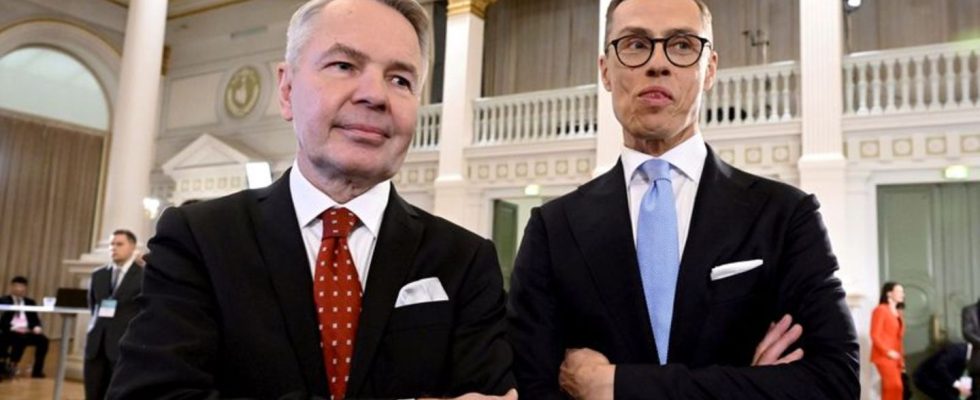Choose
Finland is heading for a runoff election for the office of president
Presidential candidates Alexander Stubb (r) and Pekka Haavisto in Helsinki City Hall. photo
© Markku Ulander/Lehtikuva/AP/dpa
None of the candidates in the first round of the presidential election in Finland was able to achieve an absolute majority. Now there will probably be a runoff election between Alexander Stubb and Pekka Haavisto.
In an extrapolation by the Finnish radio station Yle after counting almost 83 percent of the votes, the conservative Stubb got 27.3 percent in the evening, the green ex-minister Haavisto 25.8 percent. The two strongest pursuers, the right-wing populist parliament speaker Jussi Halla-aho and ex-EU currency commissioner Olli Rehn, were well behind with 18.6 and 15.3 percent respectively. A preliminary final result should be known later in the evening.
Successor to Sauli Niinistö wanted
The vote is looking for a successor to President Sauli Niinistö, who was not allowed to run again after two six-year terms in office. Under his leadership and under the impression of Russia’s invasion of Ukraine, Finland decided in 2022 to apply for membership in NATO after decades of military non-alignment. In April 2023, the EU’s northernmost country became the 31st member of the defense alliance. For the Finns, whose country borders Russia for 1,340 kilometers, this represented a major turning point.
In Finland, the president is directly elected by the people for a six-year term. One of its most important tasks is to decide on foreign and security policy together with the government, to appoint the government and to approve laws.

